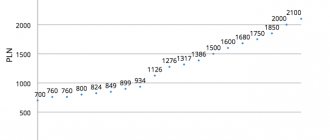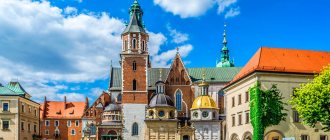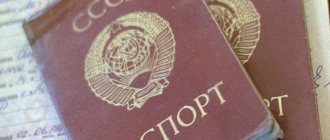What is it and what rights does it give?
There are two types of residence permits in the republic - short-term (SVP) and conditionally unlimited (permanent residence).
A temporary residence permit is granted for 3 years, and a permanent residence permit is issued conditionally forever, but the document must be renewed every 10 years. In both cases, the immigrant is issued a plastic card confirming his status:
- For a temporary residence permit - a temporary residence card, depending on the purpose of stay, its validity period is from 3 months to 3 years.
- For permanent residence - a residence permit card issued for 10 years.
In both cases, this plastic is also an identity card and tax ID.
Living card holders can:
- study, work legally, do business in Poland;
- visit Schengen countries without employment for up to 90 days;
- receive free medical care;
- have all rights and responsibilities on an equal basis with citizens;
- get a US or UK visa in a simplified manner;
- apply for Polish citizenship.
The authorities of the republic are more willing to provide residence permits to citizens of the former USSR due to the similarity of mentalities, language, household and work habits. In addition, Russians, Ukrainians or Belarusians are preferable to migrants from the Middle East, and jobs in the country need to be filled. Polish youth prefer to live and work in other EU countries.
How to obtain a residence permit for Russians and CIS citizens?
Depending on your financial capabilities and the purpose of your stay in Poland, a residence permit will have different grounds for acquisition.
- The most popular are employment, education, entrepreneurship.
- The simplest ones are repatriation and marriage to a Polish citizen.
When purchasing real estate
Unfortunately, it is impossible to obtain a residence permit in Poland simply by purchasing a home. In principle, the authorities do not prevent non-residents from concluding real estate transactions, but they do not give any preferences. Therefore, you can buy a house by the sea, but you need to obtain a residence permit for other reasons.
Investments
Investments in the economy of the republic will allow you to obtain a residence permit or permanent residence permit.
Moreover, for a legal entity, an authorized capital of only 5,000 zlotys or 1,170 euros is sufficient (as of December 6, 2019 at the rate of the European Central Bank). Other conditions for doing business in Poland:
- creation of at least 2 jobs for the local population (including foreigners with residence permit status);
- wages at the enterprise are not less than the minimum established by the state;
- the employment contract is concluded with employees for an indefinite period;
- availability of a business plan and tools for its implementation.
By and large, an entrepreneur must, with documents in hand, prove to officials that his business will benefit the Polish state.
After reviewing the documents, this is exactly what will have to be done during a mandatory interview with officials, preferably with a presentation and evidence in hand.
In the first year of activity, you do not need to show financial results, but in the second year you will need to confirm that the company generates a profit equal to 12 times the subsistence level. This is a fairly large amount (approximately 60,000 zlotys) and is not suitable for a small business. That is, you should not expect that you can open a cafe or souvenir shop and receive a residence permit on this basis.
Algorithm for opening a new company in Poland:
- Selecting the type of economic activity. The law practically does not restrict business. Only clearly criminal schemes, the construction of airfields, and television and radio broadcasting are subject to the ban.
- Registration of a legal entity. The most popular forms are LLC and OJSC. This can be done remotely.
- Obtaining a business visa. It is possible that already at this stage you will need to provide a business plan or your vision of the prospects for the development of the chosen type of business activity in Poland.
- While already on site, you can take care of the legal registration of relations with tax and social services, rental of premises, and an agreement for accounting services.
During the same period of time (since the business visa is not valid for long), you should start preparing documents for a residence permit.
This includes:
- statement;
- 4 photos;
- original and copy of passport;
- insurance policy;
- a residential lease agreement or a document on the ownership of residential premises;
- proof of income.
The business accounts for profit at the end of the financial year. An applicant for a residence permit, even if he is the sole owner of the company, shows his income regardless of its source. That is, the authorities require that the candidate receive monthly (for example, pension, dividends or salary) at least PLN 701 for himself and PLN 528 for each dependent.
In the vast majority of cases, residence permits based on business immigration are issued for a period of 12 months. When extended, they can provide it for 3 years.
Family bonds
- Marriage to a Polish citizen allows you to immediately obtain a residence permit for a period of 2 years. Then a residence permit is granted for 36 months, after which you can apply for permanent residence.
In case of divorce before obtaining a permanent residence permit, the residence permit will be cancelled. If the marriage breaks up after acquiring permanent residence, the migrant’s status will not change.Polish authorities encourage marriages to be registered in official government institutions, but church ceremonies of some denominations are not prohibited. For example, a wedding in a Catholic church will be recognized as legal.
Spouses need to be prepared for the fact that the truth of the marriage relationship will be carefully checked (questioning neighbors, unexpected visits from officials). In Poland, they are very strict about fictitious family ties concluded only for the purpose of immigration.
- Another option for obtaining a residence permit is having relatives among Polish citizens. For family reunification, the applicant must present an invitation from a relative, who must prove that he has the financial ability and living conditions to receive his foreign loved ones (spouse, children, parents).
- The easiest way for those who can prove Polish roots. If at least one of the parents or grandparents was Poles, repatriation to the applicant for permanent residence is provided under a preferential scheme. If the roots are deeper - great-grandmother and great-grandfather, then you will have to prove that they were both Poles.
Study in the country
To obtain higher education in the country, a residence permit is issued for a period of one year after successful enrollment.
Then the status will need to be renewed. Maximum re-extension is for 36 months. Many graduates of Polish universities remain to work in the country or find employment in the European Union, since diplomas from universities and institutes of the republic are accepted in 47 countries.
This is a good way to obtain permanent residence, since during your studies you can get married, find a job, or open your own business. In addition, the cost of higher education in Poland is relatively low:
- in private universities it starts from 900 euros per year of study;
- from 1,000 euros – in government;
- the most popular faculties cost the most - about 5,000 euros per year.
The advantage of higher education is that teaching is conducted in two languages – Polish and English.
At the same time, foreign students who can prove their Polish roots can study for free. They are accepted free of charge to study at universities and under programs of European grandees, for example the Kosciuszko Foundation.
Refugee status
Like most European countries, Poland is a party to the Geneva Convention, according to which state authorities are obliged to provide asylum to persons:
- persecuted in their home country for political, religious or racial reasons;
- foreseeing danger to life when returning to their country;
- those who fled from the territory of hostilities;
- those who were enslaved or former victims of human trafficking.
Obtaining refugee status is so easy. An application must be submitted directly at the border for all family members. The application review period is 5 days. If the authorities recognize migrants as refugees, they are provided with:
- temporary housing (in a camp or hostel);
- the right to health care and secondary education for children;
- language courses and benefits (paid only for 1 year).
In practice, people from the CIS are extremely rarely recognized as refugees. For example, in 2014, a large number of Ukrainians arrived in Poland, but they were all refused, since military operations were not taking place throughout the country. The same attitude is towards citizens of Georgia and residents of the Chechen Republic of the Russian Federation.
Those who simply do not have housing or work in their homeland will not be able to obtain status.
The desire to obtain a residence permit in this way is justified by the fact that a regular residence permit gives the right to legally study and work only in Poland, and a refugee residence permit throughout the European Union.
Work activity
The most popular way to obtain a residence permit in Poland is labor migration.
To be able to legally work on the territory of the republic, you need to find an official job and enter into an agreement. Polish employers willingly hire workers in the following specialties:
- turner;
- welder;
- mason.
However, they are legally limited by the requirement to first search in the domestic market.
If the applicant is highly qualified in a particularly scarce field of activity - medicine, IT, metallurgy, the chances of getting a job increase sharply.
A residence permit is issued automatically for the entire period of the contract. If you lose your job, it will also be automatically cancelled. But the migrant has 30 days to find a new employer, and being directly in Poland, this is much easier to do.
Which method should I choose?
To be guaranteed to obtain a residence permit in Poland, you need to soberly assess your chances for each of the possibilities:
- It’s easier for young people to get a higher education or marry a citizen of the state.
- Migrants of working age who have a profession in demand on the labor market - through official employment.
- The easiest way is repatriation.
- And the most difficult one is through the shelter.
Business immigration is not available to everyone. Despite the low entry threshold, you need to understand that entrepreneurial activity must generate high income in order to obtain the right to continue it in Poland, and even more so to count on obtaining a residence permit.
Features of receiving by pensioners
There are no special immigration programs for persons on a well-deserved holiday in Poland. Some pensioners choose this state for permanent residence simply because they can afford to buy real estate and have a good income at home.
It is not difficult for a pensioner to obtain a residence permit; there is a state adaptation program. For example, free Polish language courses. It makes sense to consider this option of obtaining a residence permit only if relatives, such as children, live in Poland.
How to obtain a residence permit in Poland?
Migrants who have no issues with the law or unfulfilled orders (judicial, administrative and others), who are not on the SIS lists and who are staying in the country for at least 90 days can apply for a residence permit in Poland.
To obtain a Polish residence permit, a migrant must have one of the following grounds:
- study in Polish higher (full-time) or take language courses lasting more than a year;
- own your own business or be a co-founder of a Polish legal entity;
- work under a long-term employment contract or have official employment for more than 3 months;
- be married to a citizen or person with permanent residence in Poland;
- qualify as a victim of persecution or trafficking in persons.
Depending on the reason, the documents required to be provided vary. Each option will have an individual package, but the following are common to all:
- an application in the established form, filled out in the state language;
- international passport (original and copies of pages with information);
- an insurance policy corresponding to the cost of medical care in the country;
- a bank statement confirming the availability of funds in the account or other documents proving the receipt of a stable monthly income;
- payment of state duty;
- photos taken no earlier than six months before submitting the application (4 pieces);
- documents on real estate (own or rented).
For those moving on the basis of an employment agreement, an agreement with the employer will be required. For those who are related by marriage, it is necessary to provide a marriage certificate, for repatriates - archival extracts and metrics. Those admitted to universities in the republic need a contract for the provision of educational services; refugees must provide documents proving persecution.
Terms of registration and validity of residence permit
If you have one of the listed grounds for obtaining a residence permit in Poland, you should contact the department for work with foreigners (wydzial do spraw cudzoziemcow) of the voivodeship office (urzad wojewodzki) with the collected package of documents. If the documents are in order and there are no complaints about them, then they are accepted for work. In return, a confirmation certificate is issued, and a stamp is placed in the international passport, which allows you to stay in the country legally, even if the visa has expired.
Officially, 1-2 months are given for consideration of documents, but some voivodeships delay the process up to six months. After about 3-4 days, a letter arrives confirming that the documents are being processed by a specialist, indicating his full contact information. You can write and call using the contacts provided. If there are not enough documents or some raise questions, then this is also reported in a letter, which indicates what needs to be conveyed and within what time frame.
Do you want to get a guaranteed second citizenship? Check out the rating of reliable migration companies!
A positive decision (decision) will also be notified by letter, with an invitation to come to the department. Here you will need to sign the decision, undergo fingerprinting and pay for a plastic card (the process of producing it takes 14-30 days). A temporary residence permit in Poland is granted for 3-36 months. But it is important to remember that if the basis changes, you must immediately notify the owner, otherwise the card may be cancelled.
A permanent residence permit in Poland is given for an indefinite period, but the issued plastic document certifying the status is subject to exchange every 10 years. Permanent residence is granted only after 5 years of temporary residence status, subject to compliance with Polish legislation and correct payment of taxes. Learning the language will be a plus. Living with permanent residence for more than 3 years gives the right to apply for citizenship.
Price
Each candidate must pay stamp duty for obtaining a residence permit and pay for the issuance of a plastic card. The stamp duty (state duty) from labor migrants is charged in the amount of 490 zlotys, candidates applying for a residence permit for other reasons pay 390. For the issuance of a plastic card you will have to pay 50 zlotys. If the residence permit is refused, the state fee is returned.
How to extend a residence permit?
The law allows you to submit documents to extend your residence permit no later than the last day of your officially permitted stay. But given the workload of government agencies and the length of the renewal process, this is not recommended. The optimal period for filing is 3 months before the expiration date of the previous document.
The renewal procedure is similar to the process of obtaining the first residence card and consists of the following steps:
- Preparation of a package of documents. Required: passport, insurance policy, employment contract, work permit, income data, PESEL, photo, completed application form, receipts for payment of state duty.
- Submission of documents. Available by prior appointment.
- Checking documents and allowing them to work. Just as with the first submission, the result will be a stamp in the passport or on a separate document, extending your stay in Poland for the period of consideration of the papers.
- Delivering a verdict. If you make a positive decision, you need to pay for a new plastic card and receive it.
Information about the insurance policy and income is publicly available to residents, but increasingly they are asking for it to be conveyed by notifying the applicant by letter. Therefore, it is better to immediately provide these documents when applying for renewal. If the extension was denied, there is an appeal procedure: use it to protect your interests.
Documentation
Registration of a residence permit begins with the preparation of a package of necessary papers:
- Application for residence permit in four copies.
- Copy and original passport.
- Documents confirming income of at least 701 zlotys per applicant and 528 zlotys for each dependent.
- For those moving under an employment agreement - a copy of the contract with the employer.
- Medical insurance policy.
- 4 photographs in accordance with visa requirements.
- Documents for housing (lease or sale agreement).
- Certificate of knowledge of the Polish language.
- Marriage certificate for those who are related by family ties to a Polish citizen.
- Confirmation of family ties for repatriates - certificates from archives, metrics.
- Agreement for the provision of educational services – for those admitted to universities in Poland.
- Documents confirming persecution on political, national, religious grounds - for refugees.
In each case, the package of documents will be individual, but you need to know that the authorities have an extremely negative attitude towards candidates for residence permits who provide falsified documents.
Package of documents
For all listed migration programs there is one standard package of documents. It can be slightly modified by additional papers at the request of the migration officer. But in general it looks like this:
- Application form in four copies;
- Photocopy of foreign passport;
- International health insurance policy;
- Photos of the established type 35 mm x 45 mm;
- Income certificate or bank statement;
- Documents for residential property (purchase certificate or lease agreement);
- Reasons for staying in the country (study, work, business).
Procedure
The period for reviewing documents for obtaining a residence permit is 2 months.
Almost everything happens faster. If the package of documents on the basis of obtaining a residence permit is complete, the decision is made within 1 month. Obtaining permanent residence is possible only after 5 years of holding temporary resident status. If during this period the migrant did not violate Polish legislation, regularly paid taxes, learned the language and assimilated, there will be no problems with obtaining permanent residence.
A migrant who has lived in Poland for more than 3 years with permanent residence status can apply for citizenship. At the same time, it is not necessary to renounce Russian citizenship - Polish laws allow you to have dual citizenship.
Reasons for refusal to issue and renew
As a rule, if the documents are submitted in full and are not falsified, the residence permit status will not be denied. If this happens, you can apply again after 30 days. The number of attempts is not limited.
Refusal may also result from disagreement with the fingerprinting procedure, insufficient income to live in Poland, when committing offenses in the republic or providing false information.
A migrant who has lost the basis for his status can be denied permanent residence or have his residence permit revoked. For example, divorce before obtaining permanent residence. Or loss of work with residence permit status. In the latter case, there is a 30-day period during which the migrant can find a new job. Then the residence permit will be extended.
If a crime is committed on the territory of Poland, the residence permit and permanent residence permit are canceled.
Rights and obligations of the document holder
Obtaining a residence permit in Poland opens up wide opportunities:
- unhindered entry and exit from the country;
- visiting Schengen countries for a period of 90 days within six months;
- use of free medicine and general education;
- official employment;
- purchase and sale of real estate and vehicles;
- preferential visas to third countries - Canada, USA, UK.
Responsibilities imposed on the holder of a residence permit:
- compliance with state laws;
- timely and full payment of taxes;
- advance preparation of documents for extending a residence permit or obtaining permanent resident status.
To apply for permanent residence, you must meet the condition of continuous residence in Poland for 5 years.
Obtaining a residence permit or permanent residence in Poland is a fairly simple procedure. The main thing is to comply with all the necessary formalities and not mislead the authorities regarding the purpose of your stay. For many, a residence permit in Poland becomes the start for migration to other EU states, since it is much easier to do this while being in the status of a temporary or permanent resident of the republic.
Advantages of a residence permit in Poland
A Polish residence permit allows you to legally stay on the territory of the republic, conduct business, study and find employment. In addition, a residence permit in Poland for Russians, Belarusians and Ukrainians opens up the following advantages:
- the opportunity to visit Schengen countries for up to 90 days per six months (without the right to work);
- enjoy free medical care;
- rent and buy real estate or movable property;
- obtain a visa to Britain or the USA on preferential terms.
A Polish residence permit is an opportunity to enter the EU countries or the first step to obtaining Polish citizenship. If there are intentions to work and live in the republic for a long time, then obtaining a residence permit becomes mandatory. There are many ways to legally obtain a residence permit in Poland, and the procedure itself is quite simple. The main thing: do not mislead the migration service and comply with all the required formalities.









